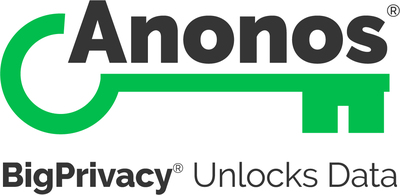TMCnet News
What the Google 50 Million Euro GDPR Fine Means for Big Data AnalyticsLONDON, Jan. 22, 2019 /PRNewswire/ -- Anonos BigPrivacy (www.anonos.com), announced today the following perspective on what the Google 50 Million Euro GDPR fine means for data insight driven companies.
The 50 Million Euro fine against Google demonstrates that the first wave of GDPR enforcement has begun. Companies must now focus on more than consent to ensure that they have the legal right to process analytics and AI, which they rely on for their growth, competitive differentiation and innovation. Many companies believe the way they processed analytics and AI before the GDPR is still legal - but that is not true. When analytics and AI cannot be described with specificity at the time of data collection - which is mostly the case with secondary processing - corporations can no longer rely on consent as they did before the GDPR. New technical and organizational safeguards are required under the GDPR to support analytics and AI processing. For secondary processing like iterative analytics and AI to remain legal under the GDPR - commonly referred to as Big Data - organizations must now have GDPR compliant technical and organizational safeguards in place that:
Technical and organizational safeguards satisfying these GDPR requirements were not previously required for lawful secondary processing using consent. As a result, most organizations do not have required new technology in place. What was "good enough" prior to the GDPR is no longer legal. The recent 50 Million Euro GDPR fine against Google and lawsuit against Oracle and Acxiom highlight the proactive nature and significant influence of advocacy groups (Max Schrems' None Of Your Business (nyob) organization in Austria and France's Quadrature du Net in the case of Google and UK-based Privacy International in the case of Oracle and Acxiom). As a result, organizations need to assess and implement appropriate technical and organisational safeguards that enforce functional separation in a timely manner to ensure uninterrupted access to data, analytics and AI to fuel growth, competitive differentiation and innovation. The substance of this press release is also available in blog format at https://www.anonos.com/blog/GDPR-Google-Fine-and-Big-Data-Analytics. About Anonos Anonos' state-of-the-art GDPR certified BigPrivacy technology enforces Functional Separation to overcome the shortcomings of other solutions that were "good enough" prior to the GDPR but now fail to support new requirements for lawful Big Data analytics, AI and ML. A Blueprint for GDPR Data Safe Havens is available at www.anonos.com/blueprint and a Guide for Compliant Legal Analytics is available at www.anonos.com/Legal-Analytics. Compliance controls alone do not unlock Big Data value. Big Data innovation requires embedding BigPrivacy-enabled Data Safe Havens to protect data when in use for lawful Big Data processing. If organizations are not using BigPrivacy-enabled Data Safe Havens, they are not maximizing Big Data value and are not processing Compliant Legal Analytics. Global 500 companies can contact anonos.com/contact to receive a consultation about leveraging Anonos' state-of-the-art technology to maximize the compliant value of Big Data. Media Contact: [email protected] +44 203 5144760
SOURCE Anonos 
|

